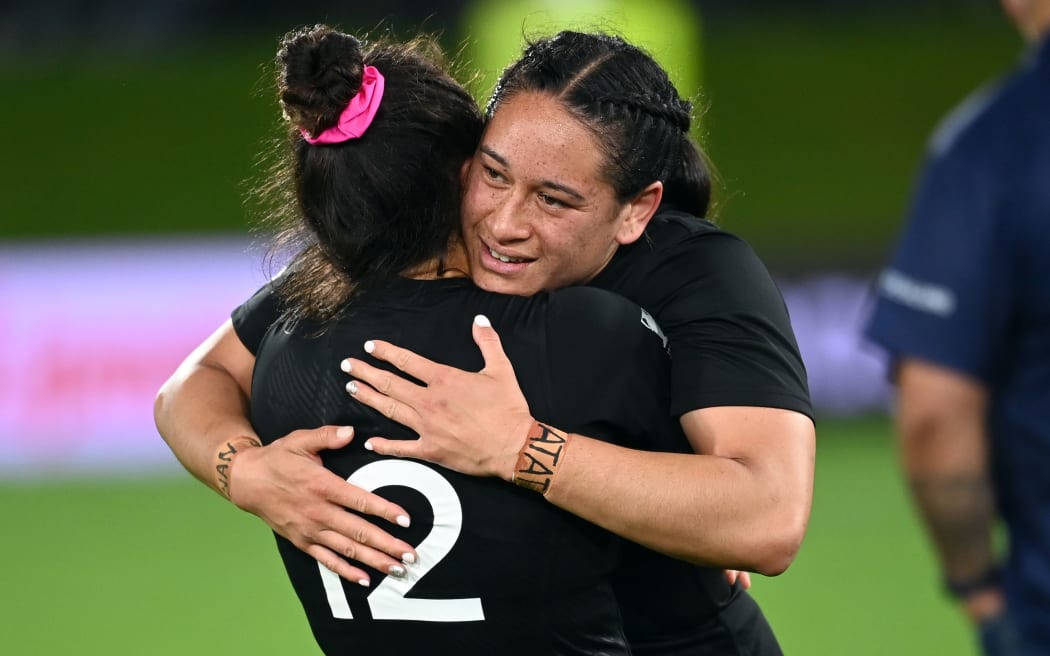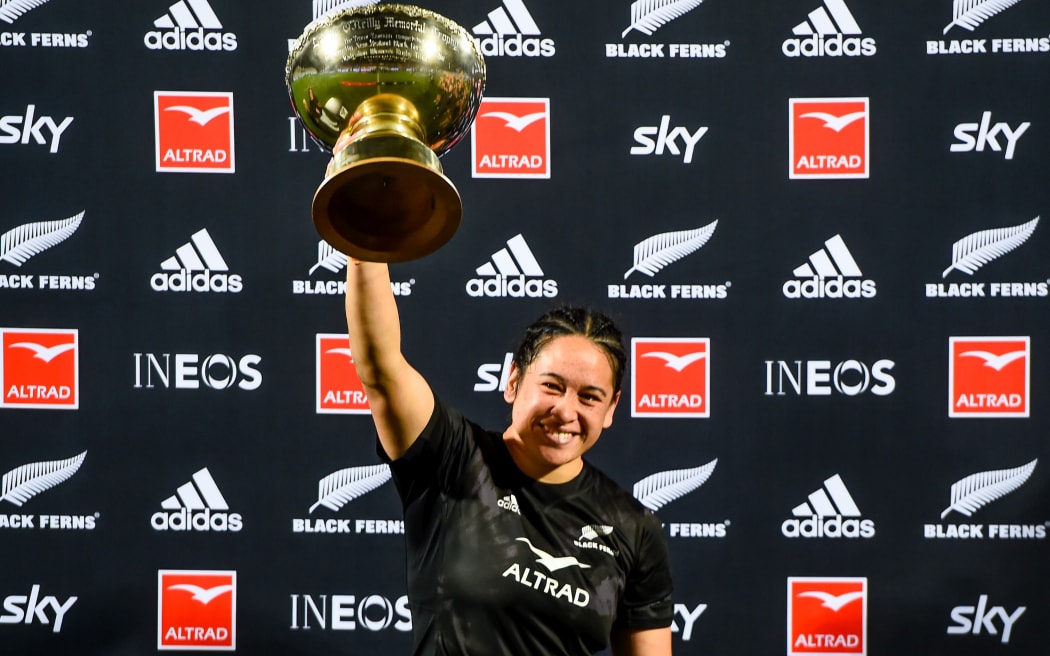Women's rugby is on a roll in Aotearoa on the back of the Black Ferns World Cup triumph, their first on New Zealand soil.

text) Photo: Andrew Cornaga / www.photosport.nz
Theresa Fitzpatrick (L) and Kennedy Simon of New Zealand embrace after the match. Black Ferns v Wales, Women's Rugby World Cup Quarter Final 2021.
The challenge now for New Zealand Rugby is to use that momentum to grow the game and ensure the Black Ferns have the best chance of defending their title in 2025.
The Black Ferns may have beaten England in last month's World Cup final, but women's rugby in Aotearoa still has some catching up to do with the English, in terms of the number of professional players and the resources those players get access to.
There will be no increase to the number of New Zealand women's players on fulltime contracts next year, with the total remaining at about 30.

Hannah Porter playing for the Black Ferns Sevens in 2009. Photo: Paul Seiser/PHOTOSPORT
Hannah Porter, who has joined New Zealand Rugby in the newly-created role of head of women's high performance, says handing out more contracts isn't the solution.
"I don't think jumping to having a whole other group of players contracted is the answer in the short term.
"I think making sure that the once the contracted group of players has been identified, that they are together as much as they can throughout the year and that we continue to strengthen our national competitions, Super Rugby Aupiki and the Farah Palmer Cup, alongside that."
The Black Ferns World Cup winning co-captain Kennedy Simon agrees and is also preaching caution when it comes to expanding Super Rugby Aupiki, at least within Aotearoa.
She believes creating a fifth New Zealand team right now could spread talent too thin, but she's keen on the idea of establishing a women's Super Rugby Pacific competition.

Kennedy Simon holds up the World Cup trophy. Photo: Photosport
That could happen by 2024, with a crossover match between the New Zealand and Australian winners in the works for next year.
After next season New Zealand Rugby will review Super Rugby Aupiki.
"We need to work out if expansion into the Australian league (Super Rugby W) is the way to go or if expansion within the New Zealand league is the way to go," Porter said.
"But, it's certainly an opportunity to secure Super Rugby Aupiki's future and provide some security to the athletes that they will be playing in a lengthy competition and will be able to develop their skills."
Porter admits the Black Ferns need to play more tests, particularly against the likes of England and France, if they're to defend their World Cup title in 2025.
The Pacific Four tournament gives New Zealand games against Australia, Canada and the US, while World Rugby's new WXV, where the top six teams in the world compete in an annual tournament, should provide some more regular games against the European teams.
New Zealand Rugby has lodged a bid to host next year's inaugural tournament and Porter is adamant the Black Ferns need regular matches in Aotearoa.
"What's really important, and what we found this year, for certainly the engagement with New Zealand fans, is to make sure that the Black Ferns are playing at home and playing some meaningful test matches here.
"What is difficult is making sure those games are meaningful and at the moment the two other best teams in the world are in the Northern Hemisphere."
At the moment contracted Black Ferns train at several regional hubs rather than one central location, and Simon, who also plays for the Chiefs Manawa and Waikato, said the spread of players makes it difficult to practice technical aspects of the game, such as scrums and lineouts.
"I think we only had five people in our hub. So, it's really hard to be able to do things like set piece.
"It would be great to see that space grow and have people being able to do full scrum sessions or full lineout sessions or contested driving mauls etc, because that's where the English got us and outplayed us in the final."
Porter said New Zealand Rugby has no plans to centralise the contracted players at this point, but the Black Ferns will hold "campaign" days to train as a team.
With just three years until the next World Cup, it won't be long before NZR find out whether they've done enough to keep the Black Ferns at the top of the pile.


